Published
- 07:00 am
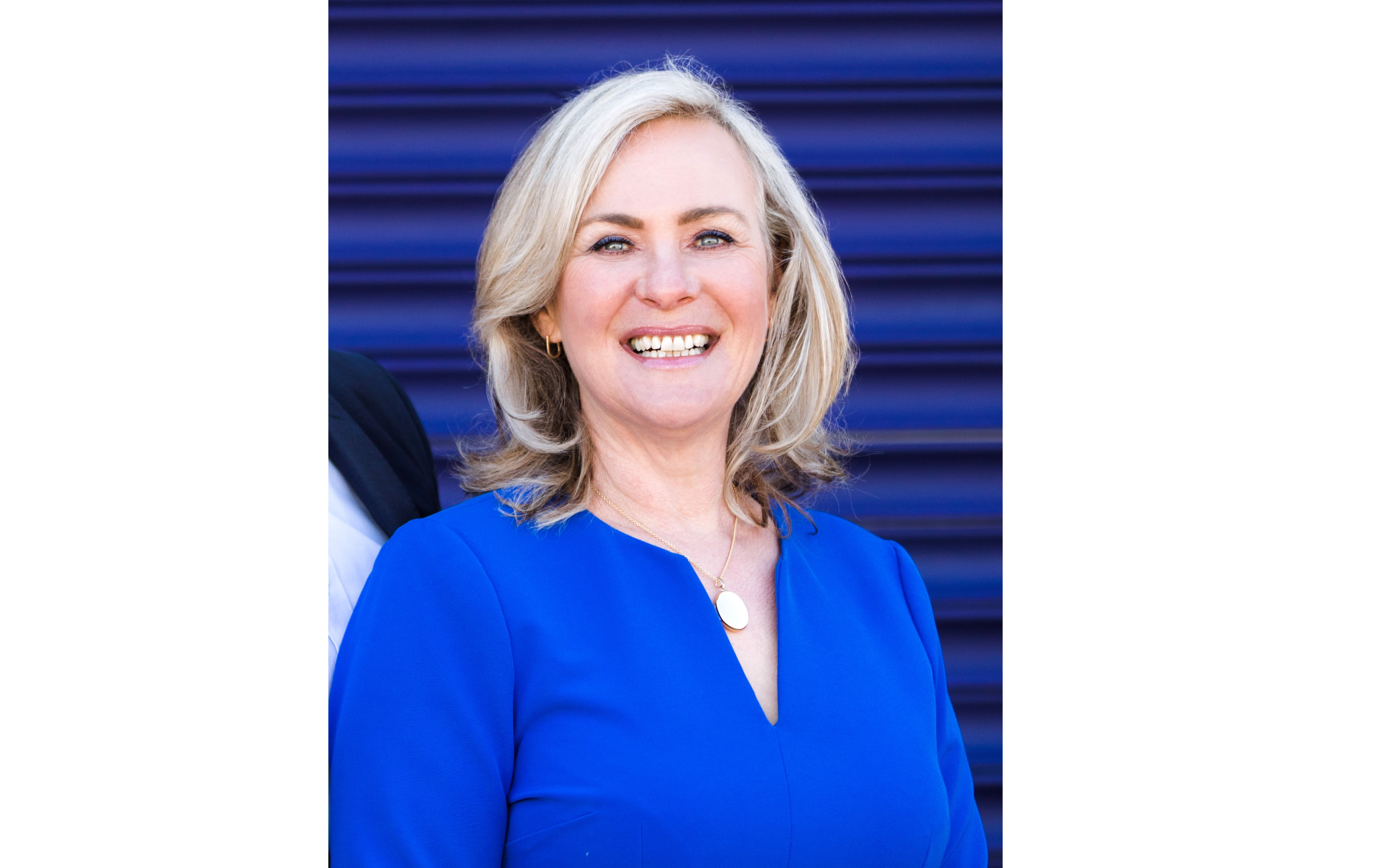
Councils that embed social value strategies into their procurement processes can add a minimum of +20% value says Eastbourne-based security print company Zunoma.
The Local Government National Procurement Strategy shows that councils embedding social value add a minimum of +20% value at no additional cost by providing genuine additional benefits for local communities.
In a recent review conducted by the Local Government Association, only 23% of 343 councils had published a social value strategy, with 44% having no mention of social value online.
Social value is setting the path for public and private sector procurement processes. It is the outcome of efforts by organisations to ensure that successful tenders demonstrate a positive contribution to the long-term wellbeing of individuals, communities, and the wider society.
As one of the key themes of the Local Government National Procurement Strategy, some councils have successfully implemented social value into their commissioning and procurement processes and are obtaining genuine benefits in areas such as employment, training and healthier communities.
Zunoma is urging councils to deliver strong social value initiatives by helping to align its services with local authorities to achieve community benefits.
Dinah Ouzman, Director of Strategy & Product Development at Zunoma, said: “Having a clear and committed social value statement will help communicate to your key stakeholders how seriously you view social value.
“From the recent review, we can see that there are many councils that are missing out on delivering real additional value to their communities, and this revolutionary shift creates a necessity for businesses to be transparent with their social value contributions as part of the tender process.”
Zunoma is dedicated to demonstrating social value contributions and is committed to supporting the local community and local schools. Its HR Manager, Lorraine Willis is working with The Turing School in Eastbourne as one of two Enterprise Advisers.
The role of an Enterprise Adviser is to volunteer time to help bridge the gap between the world of work and education, working with the career leaders and wider senior leaders of the school or college to create opportunities for young people. This government-funded voluntary role helps teachers to plan the school’s careers education and promote different workforces.
Lorraine said: “My role is to give the school strategic advice to help them reach the Gatsby Benchmarks standards which is the national measures for careers excellence”.
“As an HR professional, I am also able to utilise my skills to help students with job applications and employability skills. With Zunoma keen to recruit local talent, working with East Sussex schools makes it hopeful that we will attract the best talent.”
This year, the company will begin to promote upcoming apprenticeships and Kickstarter opportunities to local schools.
Related News
- 04:00 am

- Pensionhelp will deploy Comentis’ vulnerability assessment technology
- The leading provider of DB transfer advice will be utilising Comentis’ Cognitive Assessment Engine to detect vulnerability and direct customers to appropriate support
Pensionhelp, one of the leading providers of defined benefit (DB) transfer advice has selected Comentis’ technology to facilitate the process of identifying and supporting vulnerable customers.
Pensionhelp prides itself on offering bespoke and expert transfer advice to customers with DB pension schemes and works on referrals from Independent Financial Advisers (IFAs).
The Comentis software will help the firm to detect and support vulnerable customers early in the transfer process by asking all their new clients to complete the short online questionnaire. If the signs of vulnerability are detected, it’ll be flagged to the adviser who will then be supported through the next steps of managing that individual safely and professionally through the app.
Users will also have a clear audit trail to help with the recording and reporting of vulnerability, critical in the DB transfer market which is regularly subject to review from the regulator.
Pensionhelp is one of the first specialist providers of DB transfer advice that is proactively deploying this type of technology to support vulnerable customers. This is more important than ever following guidance from the regulator that it is against most people’s best interests to transfer their pension from a DB to a defined contribution (DC) scheme. As such, ensuring that a customer who wishes to do so is not vulnerable is vital.
Jonathan Barrett, Co-Founder & CEO of Comentis, comments:
“It’s vital that all providers of financial advice are using integrated tech when it comes to identifying and supporting vulnerable customers. The level of subjectivity that results from using manual processes alone can lead to a number of problems, particularly in the DB transfer market, which is subject to close scrutiny from the regulator. It’s therefore vital that advisers have a consistent and failsafe method for identifying signs of vulnerability and can direct these customers towards appropriate support.
“Pensionhelp is the first DB advice provider in the market to take the bull by the horns and address this head on. Our partnership will be crucial in helping them do so, providing them with a highly targeted solution to improve how they ask customers tricky questions so that no one falls through the cracks. It will also help when it comes to recording and reporting the identification of these customers to the FCA, making compliance with regulations much easier.”
Mark Wilson, Managing Director at Pensionhelp, comments:
“We opted for Comentis as its software allows us to consistently identify and support vulnerable customers, critical in the defined benefit sector as it’s so closely regulated. Some potential advantages of transferring from a DB scheme to a DC one can be outweighed by other factors, so it’s essential that customers wishing to do so not only seek independent expert advice, but also are properly assessed for any signs of vulnerability. Tech is the most efficient and consistent way of achieving this goal, especially as we are already seeing the impact of the last couple years with the FCA now estimating that there are nearly 28 million financially vulnerable adults in the UK. We’re excited about how Comentis’ tech will help our valued advisers and clients.”
Related News
- 02:00 am
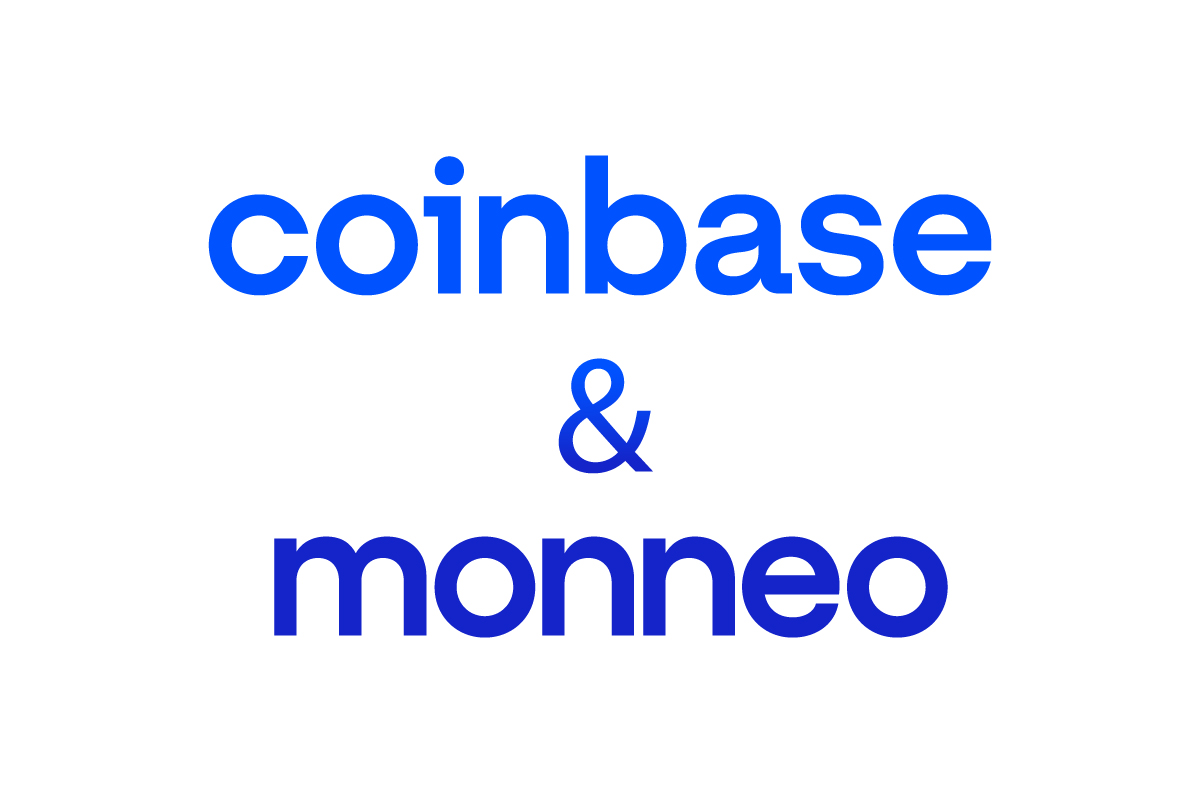
Monneo, regulated by the Financial Conduct Authority (FCA), a virtual IBAN and corporate account provider, has enlisted cryptocurrency exchange Coinbase, in a move that will enable payment of invoices in a range of cryptocurrencies. The new service will be available for B2B invoice settlement and is supported by two of Monneo’s partner banks.
Coinbase, a secure online exchange platform for buying, selling, transferring, and storing digital currencies is a leader in the cryptocurrency industry.
Lili Metodieva, Managing Director of Monneo, comments: “We are excited to offer corporates an additional method of payment. Monneo will closely monitor the launch and implementation of this new service so that it is secure and reliable for both payers and payees.
“Increasingly companies in the IT and software sectors issue invoices with the option to settle via cryptocurrency, as well as traditional currency. Through its relationship with Coinbase, Monneo is responding to customer demand and remains at the forefront promoting flexibility in how payments are executed.
“In its platform, Monneo offers payments in 130+ fiat currencies to which leading cryptocurrencies are now added. Essentially payments in a cryptocurrency are no different from FX payments via fiat currencies. The mechanisms are the same”.
Lili added: “Whatever one’s perspective on cryptocurrency, it is here to stay. Many people see both the value of it and enjoy using it. We believe that by working with Coinbase, Monneo is offering its customers the highest standards in the cryptocurrency market.
Online merchants and B2B companies can set up multiple IBANs in their company’s name across multiple banks from Monneo's network.
With its high service standard and “private banking” approach towards business customers, combined with its expertise and knowledge in all aspects of merchant payments, Monneo’s customers can receive and send payments in more than 130 currencies internationally.
Related News
- 05:00 am

- Record number of participants in Bybit's World Series of Trading (WSOT) 2021 drove up total prize pool to a historic $4.09 million, up from last year's $1.27 million
- 매억남 secured No.1 title as captain of top troop 유튜브매억남 with a staggering 2,044.90% P&L, followed by 금융인 강은호 (1,774.84% P&L) and PepeCup Army (1,417.15% P&L)
- A star-studded cast from the esports world: gaming legends from four elite esports clubs dabbled in competitive crypto trading
The 2021 edition of the World Series of Trading (WSOT) ended on a high note on Friday. The world's best crypto traders can now kick back and relax after 20 intensive days of trading, having divided up a record prize pool at $4.09 million.
South Korean outfit demonstrated the value of team effort — 840,000 USDT to be exact, taking home the prize money on top of their stunning 2,044.90% P&L earnings. This year's trading super stars also include winners by individual P&Ls: HeresJonny (P&L: 7,265.94%), chinesebirdman (P&L: 4,599.74%) and CHANS (P&L: 4,249.09%).
Powered by Bybit, the world's largest cryptocurrency trading event attracted more than 34,738 sign-ups this year, up 280.86% from last year. Team players from 136 eligible regions formed or joined 196 troops in the main event, with 19,592 independent traders opting to play solo in the individual competition.
WSOT 2021 has captivated crypto lovers worldwide this year with the sheer size of its prize pool of USDT and NFTs. The event has also extended its reach to another community with a group of special guests: A-list esports athletes.
12 gaming professionals from four prominent organizations — NAVI, Astralis, Alliance and Virtus.pro — put on their crypto trader hat and assumed the role of troop captains with 198 troopers slash fans from around the world, who followed their exhilarating performances live on the event website.
"We are in awe once again of the outpour of support from the global crypto community, and we are excited to have met all 34,738 participants this year. Whether you've just discovered WSOT or crypto, whether you are a seasoned trader or a budding crypto lover, you have found an incredibly creative and supportive community," said Ben Zhou, co-founder and CEO of Bybit.
"We have returned bigger and better this year as promised. WSOT runs on the principles of fair competition, full transparency, access to opportunities and everything crypto is about. We hope everyone who took part in WSOT 2021 will continue to find joy in trading and explore the potential digital assets have to offer in the next 12 months as we build the next big thing," Zhou added.
City of dragons, secret codes, surprise dropping of NFTs, WSOT 2021 was not for the faint of heart. Keeping up with its imaginative gamification tradition, this year's tournament kept participants entertained and challenged with live tasks, mini games, and most importantly traders had to compete to deliver the most impressive final P&Ls and performances for the grand prizes and bonus prizes. Together, traders from around the world successfully unlocked the largest prize pool the crypto trading world has ever seen.
It takes imagination and dedication to win in a trading competition, which is why Bybit is committed to furthering its partnership with UNICEF to empower girls' education in East Asia and the Pacific with another BTC donation equivalent to $400,000 in WSOT 2021, or 5% of the prize pool plus contributions from Bybit. The donation is dedicated to UN's Sustainable Development Goal No. 4 towards "inclusive and equitable quality education" via UNICEF efforts. It helps fund, among other initiatives, digital education for girls in the region by making science and technology education within reach for marginalized groups with innovative education solutions.
Related News
- 08:00 am
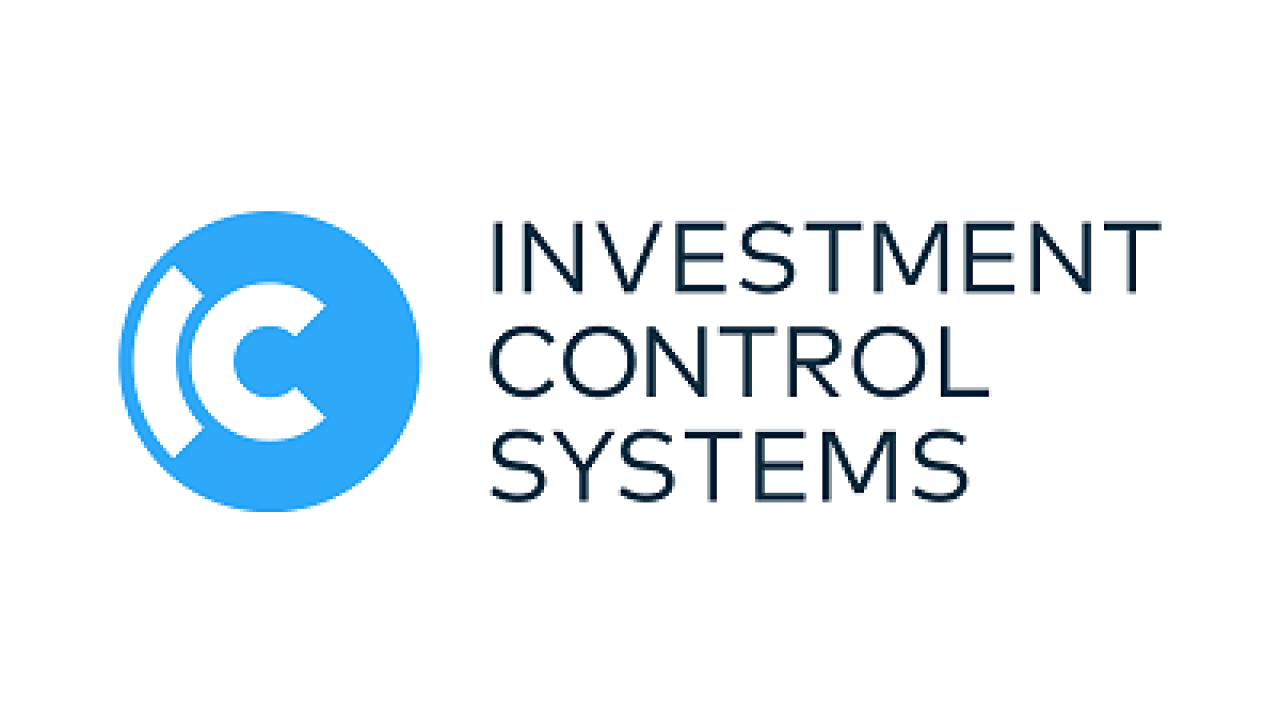
PRNewswire/ -- Investment Control Systems (ICS) today announced that Hargreaves Lansdown (HL) the UK's largest digital wealth management service has selected ICS as their partner for investment data management, analysis and reporting.
Following a rigorous vendor evaluation and peer-review which commenced in early 2021, HL with assets under management in excess of US$185B and 1.645 million clients will be looking to extract business value from the ATHENA platform kicking off the project immediately.
"Hargreaves Lansdown provides a market leading range of research and tools to help investors build their portfolios. We are always looking to continually enhance our service to clients, and this project will help us put even better information in the hands of our investors", says Toby Hine-Haycock - Head of Funds Development, Hargreaves Lansdown.
HL will be utilising ICS ATHENA as a centralised platform for automated data management of various participants including custodians, market data vendors, risk systems and more, plus manage various functions and processes including; creation of a single source of investment data, investment reporting, risk analytics integration, post trade compliance, NAV validation, reconciliations, fact sheet production as well as ESG and sustainability reporting.
Christian Eriksen – Commercial Director of ICS says "Our unique hosted investment data platform supports investment organisations with best-in-class data and reporting tools that will provide a return-on-investment in weeks, not months or years. I would like to take this opportunity to thank all the people involved in the project from HL. This is a significant client for ICS in our mission to become a leading global investment data platform"
With the signing of Hargreaves Lansdown, ICS will continue to build on an already expanding European presence with plans to extend our team and continue to grow our client base.
Related News
- 01:00 am
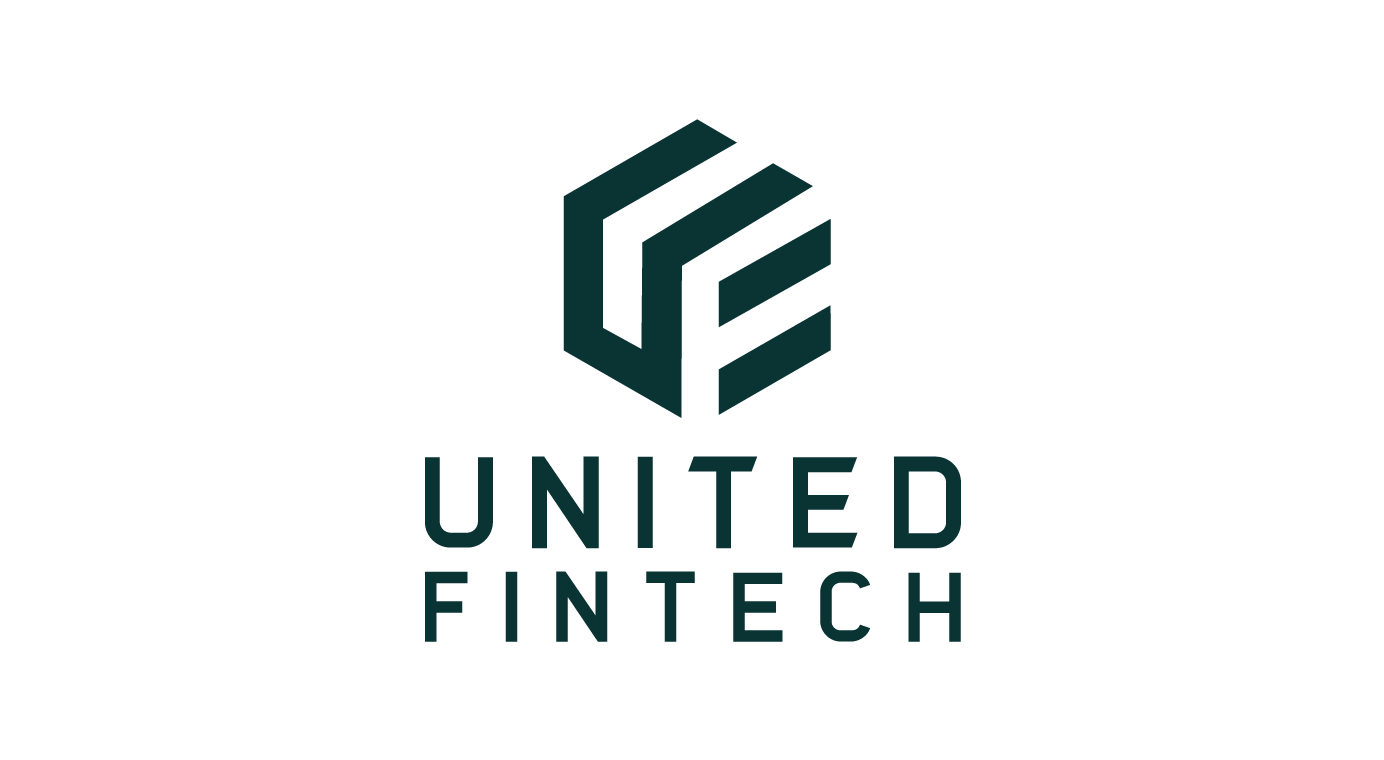
Jeff Dworin has been appointed Sales Executive, Americas at United Fintech, the rapidly growing firm launched by Christian Frahm to help banks, hedge funds and asset managers to accelerate their transition to a digital world through access to fintechs specializing in capital markets.
Jeff Dworin joins United Fintech from State Street where he worked for over five years in New York and Boston, latterly as Assistant Vice President, FX Connect Sales & Relationship Management. His career also includes business consultancy and sales roles at Eze Software Group, and FXCM.
At United Fintech, Jeff Dworin will focus on sales of the cutting-edge capital markets products within the organization’s portfolio in addition to building awareness of the United Fintech brand and vision amongst financial institutions in the Americas. He will leverage his strong buyside network and extensive e-FX experience to drive sales across the region.
Jeff joins the US division and will report to Mark Lawrence, United Fintech’s Director and Head of Americas who joined the firm from Goldman Sachs in June 2021. As the first hire in Mark Lawrence’s US-based team, Jeff is part of a global team which consists of over 70 employees across five offices: London, Copenhagen, Berlin, Romania and the US. Additional sales team members in the US are currently being recruited.
Mark Lawrence, Director and Head of Americas at United Fintech says, “United Fintech acquires and scales innovative FinTech, RegTech and CapTech companies in the capital markets space and distributes them to financial institutions in order to help them to transition to a digital world. We are on a mission to reduce cost, drive automation and deliver efficiency within capital markets. We have a very dynamic business model and Jeff really buys in to the vision of what we’re trying to build and achieve. He has a proven track record of building strong client relationships and will bring great energy and experience to our Sales efforts in the Americas. We are thrilled he has decided to come on board.”
Jeff Dworin adds, “I am extremely excited to be joining such a high caliber global team at United Fintech. The success of the organization is going to be driven by Christian’s powerful vision to partner with the banking world and offer truly innovative capital markets technology products all under one hood, enabling a seamless transformation into a digital environment. We look forward to partnering with our rapidly growing set of portfolio companies to offer the most cutting-edge, cost-efficient technology throughout the industry and we can now provide scale and distribution into the Americas.
“I am thrilled to be working for Mark whose unmatched leadership and experience is going to drive us towards our mission goal as we continue to build a strong and diverse team in New York.”
Related News
- 07:00 am

Cabital, a leading digital assets institution, today announces that it has added the European Union’s Single Euro Payments Area (SEPA) to its growing list of payment methods, enabling customers to seamlessly change between euros and cryptocurrencies and generate high-yield passive income.
SEPA allows customers to make cashless euro payments – via credit transfer and direct debit – to anywhere in the European Union, as well as a number of non-EU countries, in a quick, safe and efficient way, just like national payments.
The SEPA region consists of 36 European countries, including several countries which are not part of the euro area or the European Union.
Raymond Hsu, Cabital’s Chief Executive Officer and Co-Founder, said:
“The SEPA integration is a major milestone that enables our customers to easily move to and from cryptocurrency in a fast, safe and secure manner. Today’s announcement transformed Cabital into a full-service cryptocurrency wealth management and savings platform - where users across the European Union can deposit their digital assets to earn up to 12% a year without any hidden fees.
“Integrating SEPA into our business provides Cabital with significant competitive advantages, providing us access to everyone in the European Union and beyond. As we further expand across Europe and execute our strategic priorities, we will continue seeking efficient and secure on-ramps that will allow our customers to easily and safely invest in cryptocurrencies and generate high-yield passive income.
“I am confident that the continued execution of our strategic ambitions will create long-term sustainable value for our customers and shareholders.”
Jonas Narbutas, Cabital’s Senior Money Laundering Reporting Officer, said:
“We are delighted to receive regulatory approval to integrate our business with SEPA. This reflects the trust and confidence placed in Cabital to make a lasting contribution to the long-term development of the European Union’s cryptocurrency industry.
“Cabital believes that regulating the cryptocurrency industry is essential to its sustainable growth. We will continue to further strengthen the industry’s unprecedented level of legitimacy by leading in compliance risk and promoting a culture embedded in transparency and good business ethics. We are committed to playing our part in the further development of the European Union’s cryptocurrency industry as we plan to help millions of people across the region achieve their financial goals in a safe and sensible way.”
The SEPA integration provides Cabital with significant advantages in the European Union. It allows our customers to easily purchase and sell cryptocurrency assets with euros with any amount at the best rates in the industry. They can also now passively earn up to 12% APY. Unlike many of our competitors, we do not have any requirements for minimum deposits nor maximum deposits. We do not charge fees for depositing digital assets on our platform.
Cabital’s competitors provide high yields on cryptocurrency assets for users who stake or lock their native tokens, putting their customers at risk during volatile market conditions. Cabital successfully achieves up to 12% APY on cryptocurrency without a native token through highly strategic investments that are safe, secure and always compliant.
Today’s announcement comes after Cabital’s recent successful $4 million seed round that was led by SIG, Dragonfly, and GSR, increasing our valuation to $40 million. That followed Cabital’s recent successful angel round when we raised $3 million.
Jonas Narbutas has recently joined the leadership team as Senior Money Laundering Reporting Officer based in Vilnius, Lithuania. Prior to joining, Jonas worked in senior compliance roles at Western Union for nearly a decade. He was also the Head of Anti-Financial Crime Governance at Luminor Group.
Related News
- 03:00 am
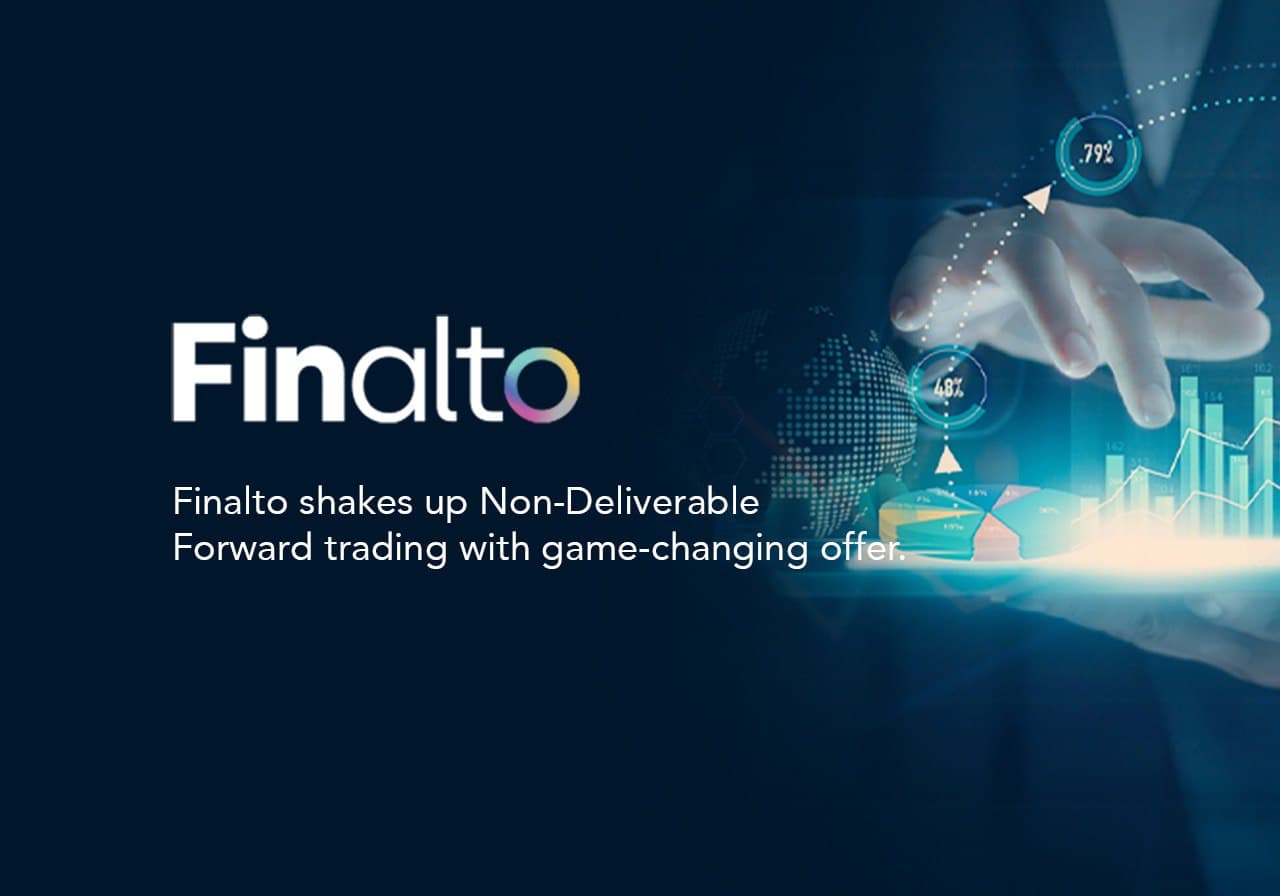
Finalto takes the complexity out of Non-Deliverable Forwards with a revolutionary NDF offer that does away with the product’s associated issues, providing a streamlined forex solution that can slot smoothly into any existing infrastructure.
For too long, clients have struggled with the complexities NDF pose, with problems cropping up trying to trade NDFs vs spots that stop trades dead, problems like:
- NDF month settling time scales - retail brokers may need to pay out client PNL the next day
- Having to deal with fixing dates which don’t occur in spots
- Needing to deal with the forward risk stemming from differences in the way retail systems work against NDFs
Finalto’s new offering is designed to slot seamlessly into the client’s existing infrastructure, putting NDFs into the client’s hands without their commonly associated headaches. Now, clients from small hedge funds to money managers and everyone in between can get fundamental exposure to FX markets without worrying about fixing dates and settlement risk.
NDF trades will be available in the below currencies initially with more to follow:
- Indian rupee
- Indonesian rupiah
- Korean won
- Brazilian real
Rupee, rupiah and won trading will be available 22 hours a day. Brazilian real will follow Brazilian exchange trading hours.
Andrew Biggs, Finalto Head of Liquidity, says, “The complexities of NDFs have caused large parts of the retail market to miss out on trading opportunities. We’ve abstracted some of those complexities to allow seamless integration into existing systems and offerings. Let us take away the hassle so you can focus on trading.”
Related News
- 07:00 am

Global brokerages are facing an increasingly competitive environment, with the exponential rise in retail trading interest during the pandemic. On the other hand, thousands of retail investors entering the market is attracting the scrutiny of regulatory bodies. Regulators are especially concerned regarding misinformation, and risky trading practices. In the United States, a change in political leanings has made data transparency, listing rules, and tax issues gain prominence for financial market participants.
Markets Direct, a brand of Triton Capital Markets Ltd., licensed and regulated by the Malta Financial Services Authority (MFSA), has announced that it will offer brokers access to US exchange traded products, in compliance with the requirements of the nation’s information reporting regime, commonly referred to as Qualified Intermediary (QI)/Qualified Intermediary Dealers (QID) Regime.
To make the most of this offer, brokers first need to know the developments expected in the US financial markets landscape in the coming years.
Market Data Pricing and Distribution
Data is an extremely valuable commodity in the world of finance. In particular, the issue of market data distribution and pricing has become extremely important for regulators and financial market participants globally.
Highlighting this fact is an example of the top US exchanges. Although they are incredibly diversified businesses, US exchanges have over the years become more dependent on the sale of market data for revenues. In fact, they are so possessive of this business model that they filed a lawsuit against the US SEC in February 2021, against the regulator’s decision to add supply and demand for stocks to public feeds. This information is sold at a premium to Wall Street banks, hedge funds, and other financial services firms.
Markets Direct has contracted with the CBOE to be an authorized re-distributor of price data. Markets Direct is required to maintain proper oversight of this data to its end users. Markets Direct has also contracted with a service provider of corporate actions. This ensures that all corporate actions are affected in the underlying trading accounts accordingly. For foreign brokers, this is a great way to foray into the US financial markets
US Exchanges Look to Clamp Down on Unauthorized Market Data Distribution
The US SEC is one of the entities to have recently received a backlash from the exchanges in this regard. For years, exchanges have been concerned about unlicensed brokerage firms re-distributing their data feeds without proper license arrangements. In a 2015 investigation by Finance Magnates, several reputed industry insiders had revealed that several big exchanges, with the help of regulators, were clamping down on downstream CFD brokers, who didn’t have direct access to exchange data feeds. But they were still providing data to their clients, without a license or paying adequate fees.
Clamping down on these practices is expected to be top-down. Exchanges will approach brokers who have the license to access their data feed directly, to understand the structure of re-distribution. For downstream CFD brokers, it will mean a blackout for US-based assets, if their upstream liquidity providers decide to terminate the feed or demand fees for the data.
CFD Brokers Need to Withhold Tax
US tax laws stipulate the withholding of tax for non-US investors (non-resident aliens) on payment of US source stock dividends, distribution of short-term capital gains, and substitute payments in lieu. Most types of income from US sources received by foreign investors are subject to a tax of 30%. This rate can be reduced, or an exemption can be provided if there exists a tax treaty between the US and the country of residence of the foreign investor.
Most CFD brokers offering margin trading activities in US-listed assets don’t withhold tax.
This can be a significant lapse in compliance, considering that the current US government is increasingly stressing on combating tax fraud and avoidance. President Biden plans to propose a funding boost of $80 billion for the Internal Revenue Service (IRS) over the next 10 years, which will help the agency double its enforcement staffing and provide new technology tools for regulatory crackdowns.
The new sources of funding will not only help the IRS train new enforcement officials but also enable it to speed up audits, without the intervention of lawmakers.
The regulatory landscape for the American financial markets is becoming increasingly complex. The QI solution through Markets Direct will offer brokers an opportunity to navigate the markets more efficiently.
MarketsDirect is a Brand of a Qualified Intermediary
Foreign brokers who wish to offer retail or institutional investment opportunities to their clients in US CFDs, indices, stocks, and other assets are required to be compliant with the Qualified Intermediary Regime (QI/QID). This is a stringent process. Not all jurisdictions qualify, and even if they do, the process for approval may take anywhere from 8 months to a year. Registration costs are high, and brokerage firms need to implement software that complies with the regime. Through the Markets Direct Gateway, brokers can allow clients access to US-listed equities without the high cost of data and registrations, as well as huge resource requirements for becoming a QI/QID themselves.
In conclusion, Brokers gain access to qualified data, while withholding tax on dividends. This will allow them to remain compliant with the law of the land, avoiding costly litigations and fines. One final point, they will not need to disclose client data to Markets Direct. The gateway will allow them complete control over individual customers, through the Markets Direct environment, from a single account.
If you need more information on this, make sure to connect with the Markets Direct team at the iFX EXPO International taking place on 4-6 October in Cyprus. Send an email to Anthony Edwards, Head of Sales-UK, to set up a meeting or you can contact sales@marketsdirect.com.
Related News
- 04:00 am

Fast-growing European trading and investing platform appoints former Exness Asia head, Chul Lim, as regional CEO; selects Singapore as its headquarters
Capital.com, the high-growth global FinTech innovator leading the UK leveraged trading industry in overall client satisfaction has today announced the appointment of Chul Lim as its Chief Executive Officer in Asia. Based in Singapore, Chul will oversee Capital.com’s expansion into East Asia , as well as neighbouring markets in the fast-growing Southeast Asian region. The company plans to establish Singapore as its regional headquarters and will begin the process of growing its team and seeking regulatory approval in key Asian markets immediately. It aims to gain a Capital Markets Services licence from the Monetary Authority of Singapore by early 2022.
With more than 15 years of experience driving strategy and growth operations in Asia, Chul will be responsible for building the business and growing the marketing team out of Singapore to help Capital.com expand across Japan, Korea, and the wider Asian region. He was most recently Regional Director of Asia for the global brokerage firm, Exness, where he was responsible for the company’s growth across a dozen Asian countries. He previously held senior leadership positions with leading global technology and e-commerce companies including JD.com, AstraZeneca, GoBear, Samsung Group and Cisco Systems.
Commenting on Chul’s appointment, Jonathan Squires, Group Chief Executive Officer at Capital.com, said:
“We see great opportunities for growth across Asia. Younger, tech-savvy Asian investors are becoming increasingly active in financial markets through online trading platforms. In January for example, we saw the share value of Malaysian rubber glove manufacturer, Top Glove surge following activity on Reddit threads in a story reminiscent of the GameStop rally in Europe and the US. Online trading is alive and well across Asia, and we are confident Asian investors will respond well to Capital.com’s simple and slick user experience, extensive educational resources and competitive pricing. With Chul’s knowledge and experience in the region, we are confident we can lower the barriers to investing and enable more people in Asia to responsibly exercise their value as investors.”
Chul Lim, Chief Executive Officer, Capital.com Asia said:
“This is an exciting time for Capital.com. The business has gone from strength to strength and is rapidly expanding its global footprint. As a cutting edge FinTech company with a global client base, it is fitting that Capital.com would choose Singapore, home to some of the most dynamic and innovative global companies, as its regional headquarters. I’m truly excited to be spearheading Capital.com’s expansion into Asia.”
Capital.com’s foray into Asia is supported by the company’s strong growth results in Europe. In 2020, the company saw its client base surge by 700% globally. While volume of trades on Capital.com increased by 65% over the same period. This growth has continued into 2021. In the first half of 2021, the platform reported a 400 per cent growth in new clients compared to H2 2020. The company recently expanded into Australia with a license granted by the Australian Securities and Investments Commission.
“Capital.com has been on an extraordinary journey the last 18 months. A strong customer-centric culture coupled with a growing interest around the world for online investing have made us one of the fastest growing trading and investing platforms in Europe. We will continue to support our clients all over the world by expanding into new markets and diversifying our products. We are committed to ensuring sound risk management and providing the right learning tools to help people become confident investors,” added Squires.
With offices around the world, Capital.com enables clients to trade derivatives on more than 3,000 of the world’s most popular indices, commodities, cryptocurrencies, shares and currency pairs. In addition to its web and mobile-based platforms, Capital.com also provides clients with access to free education and trading tools to help them hone their trading knowledge.
To give its clients access to different products and services, Capital.com launched a zero-commission stock dealing account for clients in the UK, Germany and France. The service enables clients to invest their own capital in global stocks without leverage.









